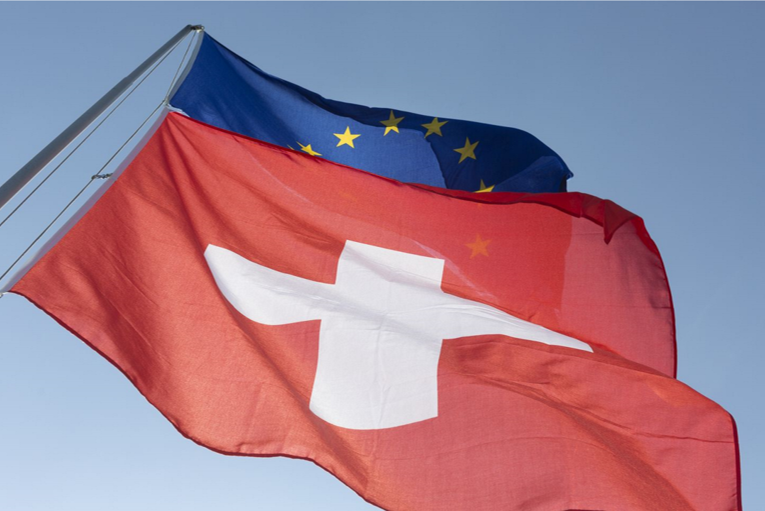Read theconsultation response to the Bilaterals III
Find out more
Wage protection
Federal Council determined to push through unacceptable trade union demands
In the negotiations on the Bilaterals III, Switzerland was able to secure important assurances with regard to wage protection. Swiss inspection practices as well as the current level of protection are therefore safeguarded. In addition, the social partners have agreed on 13 domestic measures, which Swissmem also supports.
In the early summer, however, the Federal Council also submitted a 14th measure for consultation. This proposal, an extension of dismissal protection for employee representatives, originated from trade union demands. This measure is disproportionate, imposes an additional burden on companies and constitutes an intervention in Switzerland’s liberal labour market. Swissmem, along with umbrella associations and numerous industry organisations, firmly rejects this 14th measure in its current form.
Nevertheless, the Federal Council is insisting on the measure and appears to be determined to push through the trade union line despite the fact that 80% of consultation responses opposed it – and although employer associations such as Swissmem have been offering their support for a compromise for months. With this unilateral move, the Federal Council and the Administration are treading on very thin ice, jeopardising both the agreement among the social partners and the support of the economy for the package.
The agreements will safeguard unobstructed access to the European sales market for the heavily export-oriented Swiss tech industry (mechanical and electrical engineering industries and related technology sectors) – by far the largest market, accounting for 55% – and will also reinforce legal certainty. Moreover, the Bilaterals III also take appropriate account of the interests of the sector in terms of research collaboration and electricity grid stability. It is important, however, for the liberal labour market to be preserved. Measure 14 on protection against dismissal must therefore be amended.
After close to four years of exploratory discussions and negotiations, the Federal Council submitted the Bilaterals III package for consultation on 13 June 2025. It ensures the best-possible access to the EU single market and creates a long-term, viable basis for relations with the EU. For the Swiss tech industry, unobstructed access to the largest sales market and an important pool for skilled workers is key.
Bilaterals III: the pros clearly outweigh the cons
In addition to the economic benefits, Swissmem’s consultation response also highlights the institutional improvements in the package and the opportunities that an electricity agreement would bring. Among other things, Swissmem is critical of certain aspects of the modernised agreement on the free movement of persons. Measure 14 of the domestic implementation is also clearly rejected. Switzerland has negotiated well and achieved a lot. While there is no cause for euphoria, the pros clearly outweigh the cons from the perspective of the export industry and its companies. The bilateral path is being successfully continued with the Bilaterals III.
Free movement of persons: safeguarding labour market immigration while taking a firm political stance on welfare migration and abuse
Switzerland has also achieved a lot in the negotiations in relation to the free movement of persons. Migration remains limited primarily to gainful employment. Expulsion from the country as a punitive measure is still possible. The registration procedure for economically motivated short-term employment will be retained. However, Switzerland had to make concessions in terms of residence permits, which may lead to higher welfare expenditure. The escape clause is thus all the more important: firstly, it enables Switzerland to temporarily restrict excessive immigration – even against the will of the EU – in the event of serious economic or social problems. Secondly, the Confederation and the cantons must make maximum use of and even expand the room for manoeuvre in the field of asylum. The immigration of urgently needed and integration-ready workers must not be hindered or even made impossible by problems in other areas of migration.
Electricity agreement: long-term secure and cost-effective electricity supply
The new electricity agreement will link Switzerland with the European domestic electricity market, reinforce grid stability and improve the plannability of cross-border electricity current flows. The agreement is of strategic importance to the Swiss technology industry. It opens up the electricity market – albeit while retaining freedom of choice, allows optimum use of hydroelectric power and will tend to result in lower electricity prices.
Domestic implementation: maintain wage protection standards, reduce measure 14 to an acceptable level
In terms of domestic policy measures, the social partners already agreed on a wage protection package in March 2025. Measures 1 to 13 in the package effectively safeguard wage protection without intervening in the liberal labour market. Swissmem therefore supports the package, provided it remains intact in the political process. Measure 14 on extended wage protection of up to 35,000 employee representatives, proposed by the Federal Council, clearly goes too far, however. It must be reduced to an acceptable level. Swissmem is prepared to provide constructive input on achieving a balanced solution.
Cohesion payments: a justifiable price for EU market access
Finally, the Bilaterals III and thus the secure and improved access to the biggest economic and partnership of values have a price: the cohesion payments will rise over time to around CHF 40 per inhabitant per year. However, Swissmem considers this to be a justifiable cost.
Horizon Europe strengthens innovativeness – Erasmus+ offers too little added value
For Swissmem, full association for Switzerland in the EU’s Horizon Europe research programme is of great importance. Around one quarter of the funded projects favour Swiss SMEs which in turn gain access to expertise, networks and innovative markets. By contrast, Swissmem has rejected participation in Erasmus+. Compared with the existing Swiss solution, the additional benefit of association is too modest, given the considerably higher costs.
